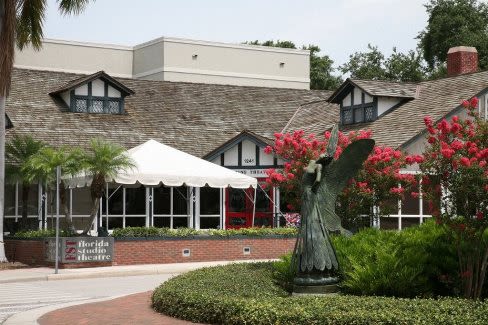Selby Gardens and Other Nonprofits Face Challenges to Tax-Exempt Status

A Selby Gardens employee cares for plants.
Image: Jenny Acheson
Marie Selby Botanical Gardens and Historic Spanish Point may have reopened this week after being closed for more than two months due to the COVID-19 pandemic. But restrictions and revenue loss due to the virus aren’t the only issue concerning these and other nonprofit institutions right now; they are also dealing with a challenge to their tax-exempt status from the Sarasota County Property Appraiser’s Office.

Marie Selby Botanical Gardens president and CEO Jennifer Rominiecki.
Image: Courtesy Mischa Kirby
This isn’t the first time the appraiser’s office, headed by Bill Furst, has attempted to deny that status to Selby; the first, last year, was ultimately unsuccessful due to a mailing deadline snafu. But as this time of year is when the office does its appraisals for tax purposes, the issue is back. And, in light of serious losses stemming from the coronavirus, it’s of even more concern to the nonprofit cultural institutions at risk.
“Honestly, it’s just very surprising and bewildering,” says Selby Gardens president and CEO Jennifer Rominiecki. “I’ve been in leadership roles for cultural institutions for 25 years in multiple states, and in my professional experience operations like small gift shops and food service on-property with preferred vendors to develop sustainable revenue for your core mission is an industry best practice.”
It was Selby’s 2016 agreement with Sarasota Restaurant Enterprises, which operates Michael’s On East, to provide restaurant and catering services on the gardens’ site that first stirred the appraiser’s office to scrutinize the gardens’ status. The appraiser considers that the restaurant operators have “exclusive use and control” over portions of the gardens, which would make part of Selby’s property subject to taxation.
In Selby’s case, Rominiecki says, that could mean payment “to the tune of $250,000 a year” for the gardens and its Historic Spanish Point campus. “It’s significant,” she says. She adds that Selby has been operating in the same way for 45 years, “in the very basic ways attractions do” when it comes to food service and gift shop revenues, working with preferred vendors, as do cultural nonprofits not only in Florida but around the country.
“This would set a precedent for the entire nonprofit sector,” she says.
Leah Zammit, legal counsel for Selby, says, “Our perspective, and that of every other county in Florida that we have looked at, is that when revenue earned from those ancillary services goes directly back towards a nonprofit’s mission—as it does with both of Selby Gardens’ campuses—that property remains tax-exempt. We don’t understand why the property appraiser is taking positions that other property appraisers in the state are not taking.” Zammit adds that the appraiser has spent more than $83,000 pursuing this, “a major waste of taxpayer dollars,” and that Selby has so far spent roughly $50,000 defending itself.
One of the problems from a legal standpoint, Zammit says, is that the wording of the statute affecting the case is vague, citing “incidental use” of a nonprofit’s property, without defining exactly what that means. “We want to work with the property appraiser…to get that defined.”
Florida Sen. Joe Gruters seems to share that concern about the wording of the law. He’s said he’s considering filing legislation that would protect tax-exempt cultural institutions, clarifying what they are allowed to do with their property. Gruters has also said he believes that appraiser Furst is interpreting the law as written; that’s why new legislation may be needed. [We’ve reached out to Gruters’ office and will update this story if and when we receive a response.]
As mentioned, Selby and Historic Spanish Point are not the only nonprofits that have received intent to deny tax-exempt status letters. Florida Studio Theatre, Mote Marine Laboratory, the Sarasota Opera and the Conservation Foundation of the Gulf Coast have also received denial letters.
"This is highly concerning," says FST managing director Rebecca Hopkins of the notice. "According to the law, we are not required to refile for tax exemption unless we have a change in use on the property. There has been no change in use. There has been no change of the law. The property appraiser has decided to change the rules with no warning or reasoning. This could have significant negative consequences for all nonprofits in the state."

Florida Studio Theatre is among the nonprofits concerned about possible loss of tax-exempt status.
Image: Courtesy Photo
Hopkins adds, "The county has always been a tremendous supporter of arts and culture. I think they still are. I find it difficult to believe that they want to create this type of damage to so many nonprofits. Right now all of us are under tremendous stress trying to survive this pandemic. If the tax collector suddenly wants to debate what has been acceptable use for decades, now is a very odd time to choose to do that."
Appraiser Bill Furst was out of town when we contacted his office for comment; we will also update this story when we receive a response from him.



